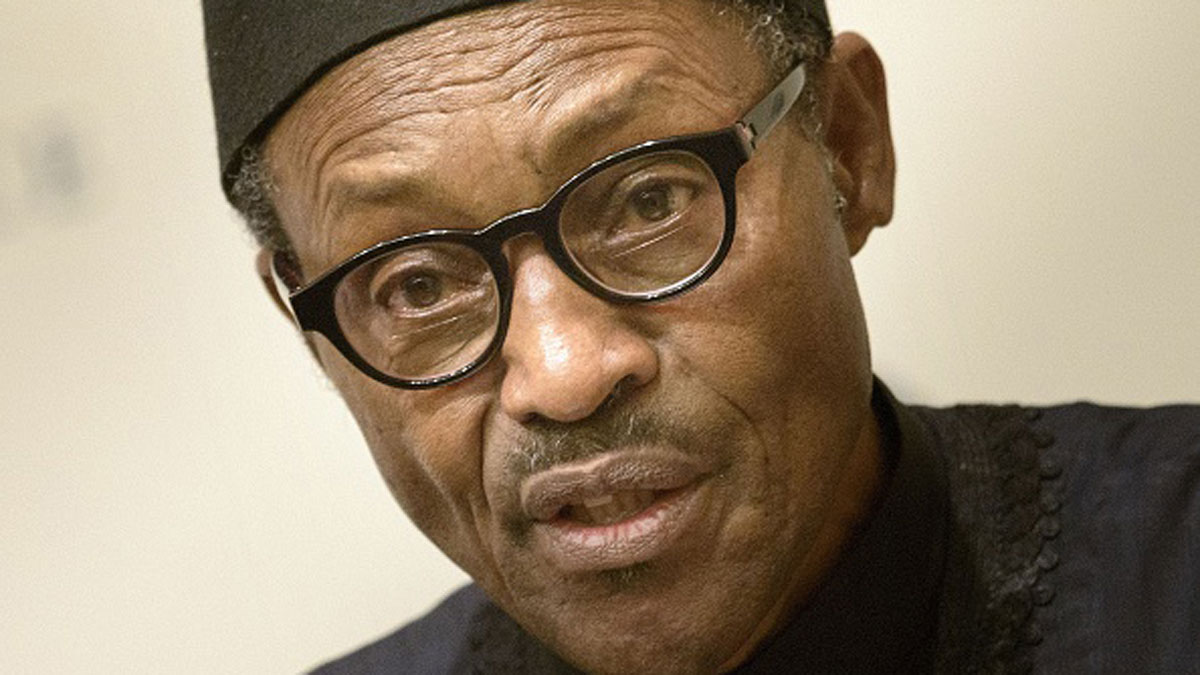Is Muhammadu Buhari winning the war against Boko Haram?
Nigerian army frees more women and children held captive by the Islamist group, but the fight is far from over

A free daily email with the biggest news stories of the day – and the best features from TheWeek.com
You are now subscribed
Your newsletter sign-up was successful
The Nigerian military says it has rescued more than 178 captives from Boko Haram camps in the north of the country, the majority of them women and children.
A Boko Haram commander was also detained and several militant camps were captured during the mission near the town of Bama, according to an army spokesperson.
President Muhammadu Buhari, a former military leader, was elected earlier this year after criticising his predecessor Goodluck Jonathan's response to the crisis and vowing to crush the Islamist insurgency.
The Week
Escape your echo chamber. Get the facts behind the news, plus analysis from multiple perspectives.

Sign up for The Week's Free Newsletters
From our morning news briefing to a weekly Good News Newsletter, get the best of The Week delivered directly to your inbox.
From our morning news briefing to a weekly Good News Newsletter, get the best of The Week delivered directly to your inbox.
Despite having the largest army in West Africa, Nigeria's military has struggled to push back the militants in recent years. Successful rescue missions carried out this year suggest it might be turning a corner, but the fight against extremism is far from over.
Is Buhari's army winning?
The Nigerian army has claimed a number of significant victories in the past few months, reclaiming several towns in the north-east previously held my militants and freeing hundreds of captives. Buhari argues that the formation of a stronger regional coalition with Cameroon, Chad and Niger will lead to the elimination of Boko Haram. However, Reuters points out that the multinational task force has been "dogged by a lack of funding and political will" and suffered numerous delays.
Despite these successes, there has been no let-up in the terrorist attacks targeting civilians, particularly suicide bombings and guns attacks on soft targets like market places, churches and schools. Troops have also been unable to locate the hundreds of schoolgirls captured in Chibok last year and abductions still occur.
A free daily email with the biggest news stories of the day – and the best features from TheWeek.com
The group's leadership also remains intact, which means Boko Haram "may continue to possess the acumen to replenish, regroup, and rearm both within and outside of Nigeria's borders," warned Ryan Cummings, Chief Africa Analyst for the risk management firm Red24.
What next?
Buhari has not ruled out the option of entering into peace talks with the militants. "If Boko Haram opts for negotiation the government will not be averse to it," his spokesperson told Bloomberg last month. But he added that the administration would "not be negotiating from a position of weakness, but that of strength".
Analysts also point out that the battle against the insurgents is not simply a military one. "Until factors like poverty, unemployment and lack of education can be addressed, local populations will remain vulnerable to extremist ideology," says the BBC.
Max Siollun, a Nigerian historian and author, also highlights the urgent need for the rescued women and children – many of whom have fathered children by the militants – to be given rehabilitation and support once they return to their communities. "The conflict is entering a phase where it needs to be fought not just with bombs and guns, but also by addressing the consequences of the insurgency," he writes in The Guardian.
-
 Local elections 2026: where are they and who is expected to win?
Local elections 2026: where are they and who is expected to win?The Explainer Labour is braced for heavy losses and U-turn on postponing some council elections hasn’t helped the party’s prospects
-
 6 of the world’s most accessible destinations
6 of the world’s most accessible destinationsThe Week Recommends Experience all of Berlin, Singapore and Sydney
-
 How the FCC’s ‘equal time’ rule works
How the FCC’s ‘equal time’ rule worksIn the Spotlight The law is at the heart of the Colbert-CBS conflict
-
 Epstein files topple law CEO, roil UK government
Epstein files topple law CEO, roil UK governmentSpeed Read Peter Mandelson, Britain’s former ambassador to the US, is caught up in the scandal
-
 Iran and US prepare to meet after skirmishes
Iran and US prepare to meet after skirmishesSpeed Read The incident comes amid heightened tensions in the Middle East
-
 Israel retrieves final hostage’s body from Gaza
Israel retrieves final hostage’s body from GazaSpeed Read The 24-year-old police officer was killed during the initial Hamas attack
-
 China’s Xi targets top general in growing purge
China’s Xi targets top general in growing purgeSpeed Read Zhang Youxia is being investigated over ‘grave violations’ of the law
-
 Panama and Canada are negotiating over a crucial copper mine
Panama and Canada are negotiating over a crucial copper mineIn the Spotlight Panama is set to make a final decision on the mine this summer
-
 Why Greenland’s natural resources are nearly impossible to mine
Why Greenland’s natural resources are nearly impossible to mineThe Explainer The country’s natural landscape makes the task extremely difficult
-
 Iran cuts internet as protests escalate
Iran cuts internet as protests escalateSpeed Reada Government buildings across the country have been set on fire
-
 US nabs ‘shadow’ tanker claimed by Russia
US nabs ‘shadow’ tanker claimed by RussiaSpeed Read The ship was one of two vessels seized by the US military